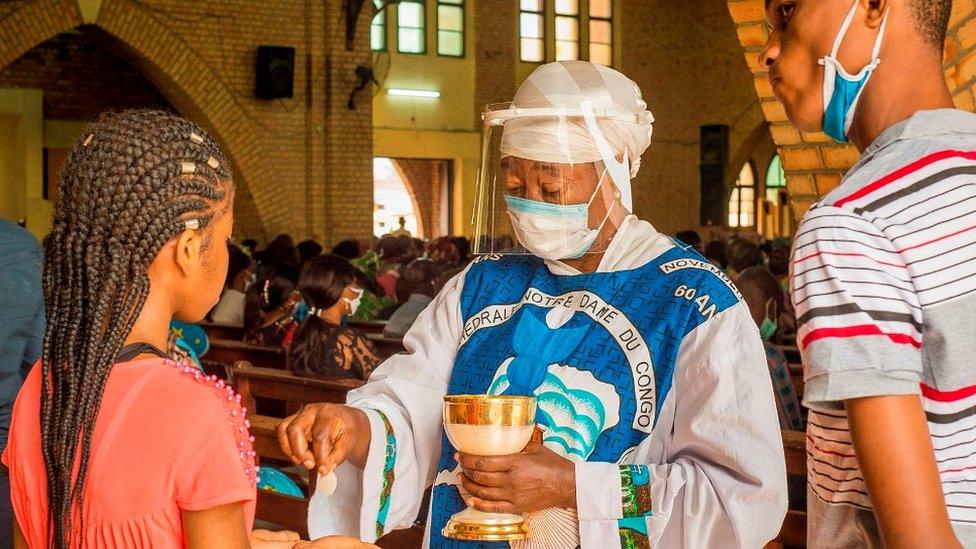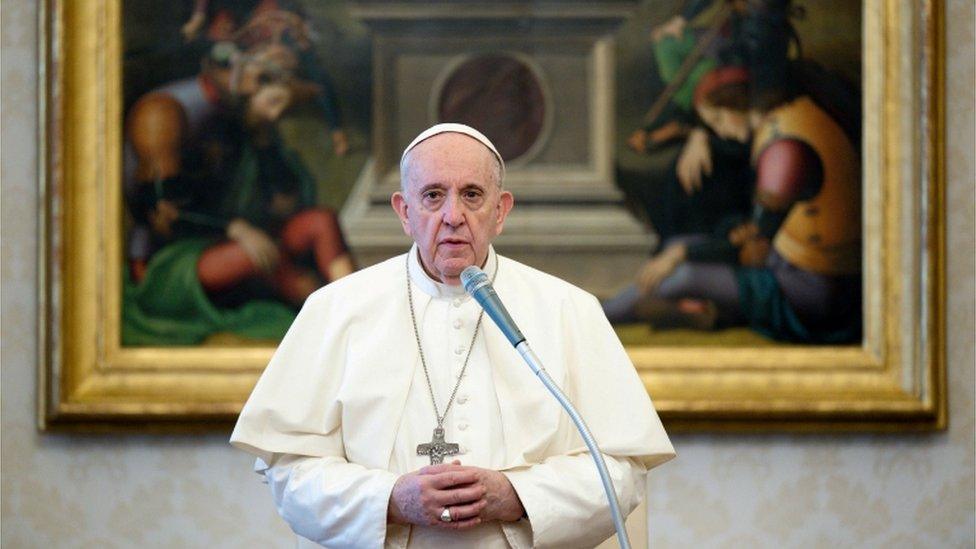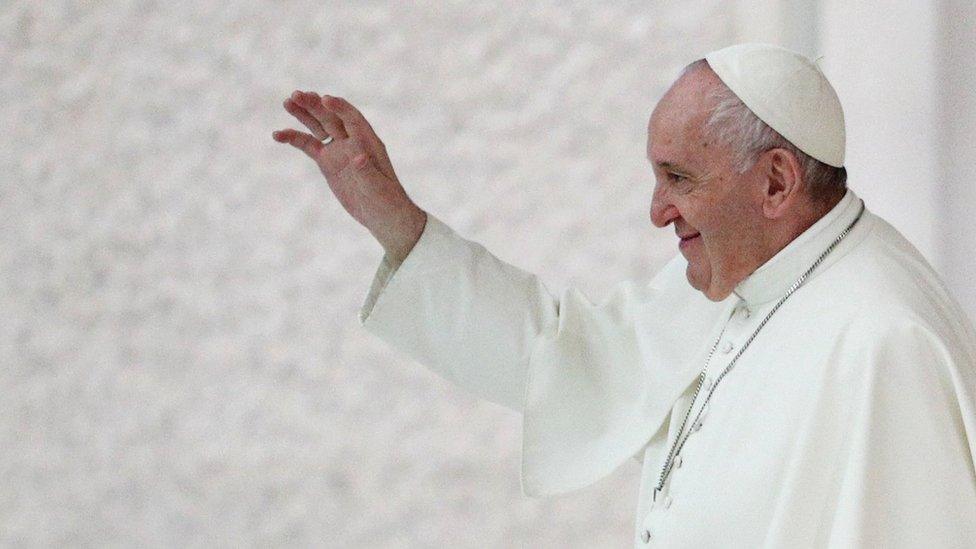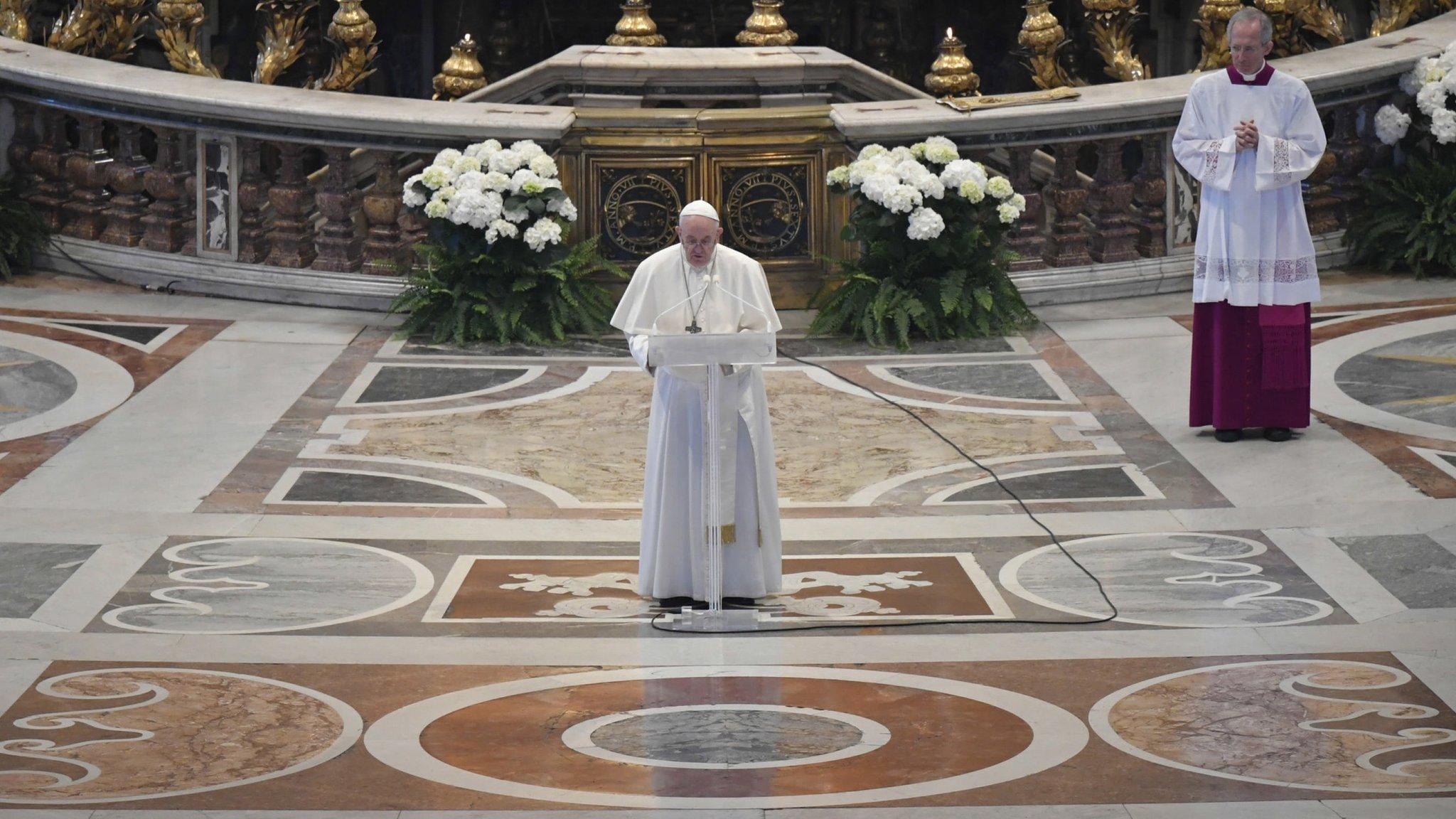Pope Francis backs women's roles in Catholic services
- Published

Holy Communion at a Catholic cathedral in Kinshasa, DR Congo, under Covid rules
Pope Francis has formally changed the law in the Roman Catholic Church, allowing women to administer communion and serve at the altar.
But the ordained priesthood will still be the preserve of men, he stressed in the decree.
It is official recognition of roles already performed by women in some Catholic services, especially in Western countries.
The Pope said women were making a "precious contribution" to the Church.
The announcement is expected to force conservative Church leaders to accept greater involvement of women in the liturgy.
On the more reformist wing of the Church, Pope Francis has tried to present a more welcoming image through his rhetoric, the BBC's Mark Lowen reports from Rome.
But last year, after a synod to decide whether to allow women to become deacons able to preside over some Church services, the Pope refused to make the change, frustrating some who had hoped for more fundamental reform during his pontificate.
The Pope changed a clause in canon law from "lay men" to "lay persons", specifying that they can perform "the ministries of lector and acolyte" in Catholic services.
His decree, called a Spiritus Domini, was accompanied by a letter explaining "the urgency... to rediscover the co-responsibility of all of the baptised in the Church, and the mission of the laity in a particular way".
A lector in the Catholic Church, external can recite prayers and sacred texts such as psalms during Mass and other services, but gospel readings are done by the priest or deacon.
An acolyte assists the priest or deacon at the altar and can distribute the Eucharist - the bread and wine - during Mass.
More on Pope Francis and the Vatican:
Pope Francis: "This is not a time for indifference"
- Published22 December 2020

- Published21 October 2020

- Published12 April 2020
